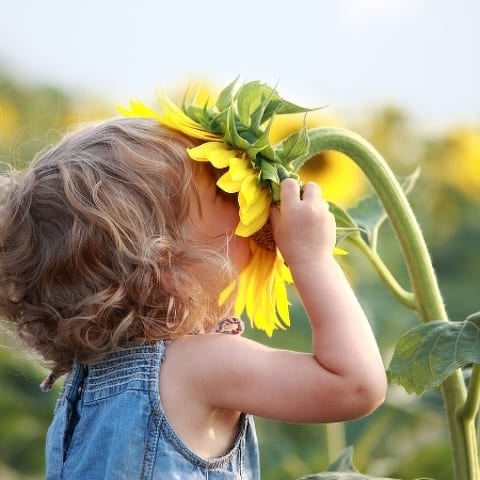“There is a garden in every childhood, an enchanted place where colors are brighter, the air softer, and the morning more fragrant than ever again.” — Elizabeth Lawrence
I often wish now that I had been raised in a family that treasured the growing of things. We didn’t have the space or the opportunities to grow vegetables, fruit trees or flowers when I was young. I think it would have taught me how to appreciate more things in life.
My sole gardening memories consist of my mother’s talk of her selling flowers at the gritty city cemetery near where she grew up and the sweet fragrance of a tiny established patch of lily-of-the-valley growing beneath our back steps.
I remember spending time with my friend Christine, making grass whistles or catching fireflies in Mason jars. I lived on a city block of brick twins with postage stamp yards. There was not much time given to reflect on nature.
And yet, even those few faint impressions call to mind a time when the world was green and full of wonder. I didn’t begin to garden in earnest until much later, after I retired actually, and I feel very happy and fortunate that I finally did.
I hope to do so much better with my own grandchildren. They are still so young, but there’s opportunity, potential and untapped curiosity in Max and Molly.
Initially, perhaps when they are toddlers, I can take them into the garden to see what is happening. Are the chipmunks chasing each other again into their grass tunnels? Is the red cardinal at the feeder making its distinctive call? Is a honey bee buzzing on that catmint? Are there places in the garden where it’s safe to walk to avoid squashing growing things?
In time, it might be good to let them do some safe exploration on their own. I could supply things for them to dig, water and plant, as well as opportunities to play with toys like push lawnmowers and dump trucks outside. I’ll have tools their size and a child-size watering can they can use to help water and learn that all plants need sunlight and water to thrive.
Later on, when they are a little older, they will hopefully come to understand that their fruits, vegetables and flowers do not come from bins in the supermarket, but from farms where they are nurtured by growers who work the land in all sorts of conditions.
The best way to do that might be firsthand experience — maybe have them help to plan, plant and maintain their own small plots of vegetables, built for function rather than for beauty. They could have tasks to perform, to harvest and eat what they’ve planted as they see it mature from seed to table. I will hope they realize that sometimes pests or disease interfere, and not everything lives in the garden world no matter what. Patience is often more important than quick fixes in so many ways.
I’ll also like them to be comfortable with dust, mud, soil and water. This can always be self-satisfying, no matter how old they become, even as old as Grammy.
They will get to know that bugs and crawly critters are natural and cool. Things like worms, caterpillars, slugs, spiders and the other millions of insects are all part of the wide world and should foster amazement and curiosity, rather than repulsion. We’ll do lots of observations of insects.
One of the neatest things we could have is an explorer’s kit they could use for garden adventures. In it, they could have things like:
■ A magnifying glass for viewing hidden wonders
■ A notebook to draw or write down observations and descriptions of the garden
■ A sheet of Plexiglas on which to place and observe critters
■ A canning jar with a ring lid and piece of screening to catch, observe and release insects
■ A measuring tape
■ A camera or even a device to record video
■ A flashlight for nighttime exploring
As they grow, these two might want to have other kinds of fun in the garden. They could make theme gardens like ones that grow the ingredients of pizza (tomatoes, basil, oregano, rosemary and more) or a moon garden with flowers like evening primrose, four-o-clocks, white alyssum, white petunias and moon flowers. That way they can see where beings like bats, toads and fireflies make themselves known.
The fun ideas are limitless.
In the end, my fondest hope is that Molly and Max will better appreciate the world in which they are a part and someday celebrate garden experiences with their own families.



